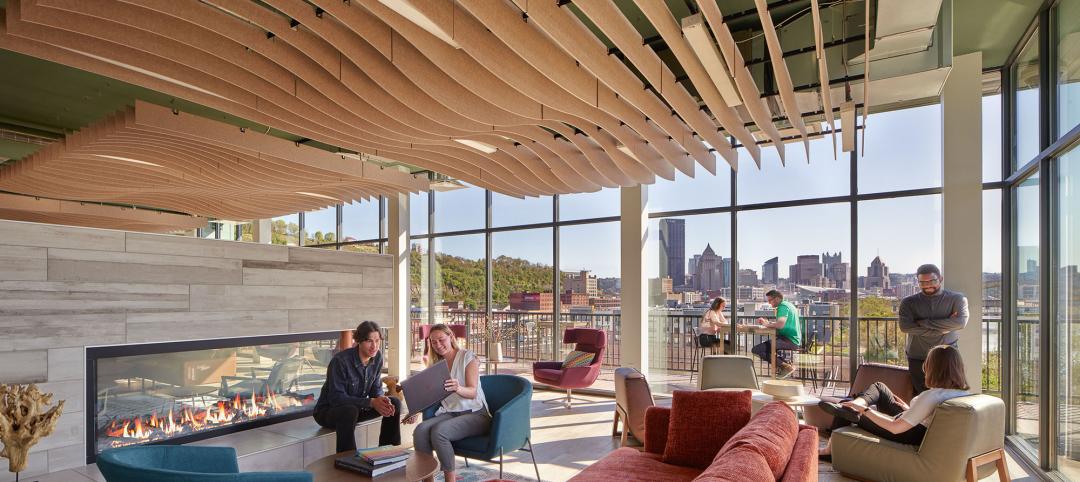The National Council of Architectural Registration Boards (NCARB) has launched the second phase of its revised certification path for architects without a degree from an accredited program. This newest path comes as part of a multi-year effort to streamline NCARB programs and initiatives to be more inclusive of individuals outside of the traditional path to licensure, while maintaining the rigor necessary to protect the public’s health, safety, and welfare.
Through the new NCARB Certificate Portfolio, architects licensed in a U.S. jurisdiction who hold any education other than an architecture-related degree—including those who do not have a college degree—can satisfy the Certificate’s education requirement by completing an online portfolio documenting learning through experience. The first phase, which launched in February 2017, enables architects with a four-year, architecture-related degree to satisfy the same requirement by documenting two times the Architectural Experience Program’s™ (AXP™) hours.
“Professional mobility is a goal of many practicing architects,” said NCARB President Kristine A. Harding, NCARB, AIA. “This revised path makes that goal achievable for a broader range of licensed individuals, while maintaining the quality standards expected by our boards and the public.” Together, these alternative paths form the successor to the Broadly Experienced Architect (BEA) Program, which was retired in 2016.
The NCARB Certificate is a valuable credential for architects that facilitates reciprocal licensure across the 54 U.S. jurisdictions and several countries, among other benefits. To qualify for certification, applicants must meet the NCARB Education Standard, traditionally done by earning a professional degree in architecture from a program accredited by the National Architectural Accrediting Board (NAAB).
Both the NCARB Certificate Portfolio and two times AXP option are offered at no additional charge to active NCARB Record holders and eliminates the BEA’s $5,000 review fee. It also facilitates a shorter, more objective review process than the previous program, allowing applicants to link exhibits in the portfolio to specific areas outlined in the NCARB Education Standard. Applicants will also need to meet NCARB’s experience and examination requirements to earn an NCARB Certificate.
U.S. architects interested in pursuing certification through the portfolio must have at least three years of continuous licensure in any U.S. jurisdiction without disciplinary action, and fall into one of two categories:
-
Architects with post-secondary education who have obtained 64 or more semester credit hours. These applicants are required to obtain an EESA evaluation and submit a portfolio to address any deficiencies.
-
Architects with less than 64 semester credit hours of post-secondary education. These applicants are not required to obtain an EESA and must address all education requirements through a portfolio.
Related Stories
Green | Apr 8, 2024
LEED v5 released for public comment
The U.S. Green Building Council (USGBC) has opened the first public comment period for the first draft of LEED v5. The new version of the LEED green building rating system will drive deep decarbonization, quality of life improvements, and ecological conservation and restoration, USGBC says.
Codes and Standards | Apr 8, 2024
Boston’s plans to hold back rising seawater stall amid real estate slowdown
Boston has placed significant aspects of its plan to protect the city from rising sea levels on the actions of private developers. Amid a post-Covid commercial development slump, though, efforts to build protective infrastructure have stalled.
Sustainability | Apr 8, 2024
3 sustainable design decisions to make early
In her experience as an architect, Megan Valentine AIA, LEED AP, NCARB, WELL AP, Fitwel, Director of Sustainability, KTGY has found three impactful sustainable design decisions: site selection, massing and orientation, and proper window-to-wall ratios.
Brick and Masonry | Apr 4, 2024
Best in brick buildings: 9 projects take top honors in the Brick in Architecture Awards
The Ace Hotel Toronto, designed by Shim-Sutcliffe Architects, and the TCU Music Center by Bora Architecture & Interiors are among nine "Best in Class" winners and 44 overall winners in the Brick Industry Association's 2023 Brick in Architecture Awards.
Retail Centers | Apr 4, 2024
Retail design trends: Consumers are looking for wellness in where they shop
Consumers are making lifestyle choices with wellness in mind, which ignites in them a feeling of purpose and a sense of motivation. That’s the conclusion that the architecture and design firm MG2 draws from a survey of 1,182 U.S. adult consumers the firm conducted last December about retail design and what consumers want in healthier shopping experiences.
Healthcare Facilities | Apr 3, 2024
Foster + Partners, CannonDesign unveil design for Mayo Clinic campus expansion
A redesign of the Mayo Clinic’s downtown campus in Rochester, Minn., centers around two new clinical high-rise buildings. The two nine-story structures will reach a height of 221 feet, with the potential to expand to 420 feet.
Sports and Recreational Facilities | Apr 2, 2024
How university rec centers are evolving to support wellbeing
In a LinkedIn Live, Recreation & Wellbeing’s Sadat Khan and Abby Diehl joined HOK architect Emily Ostertag to discuss the growing trend to design and program rec centers to support mental wellbeing and holistic health.
Architects | Apr 2, 2024
AE Works announces strategic acquisition of WTW Architects
AE Works, an award-winning building design and consulting firm is excited to announce that WTW Architects, a national leader in higher education design, has joined the firm.
Office Buildings | Apr 2, 2024
SOM designs pleated façade for Star River Headquarters for optimal daylighting and views
In Guangzhou, China, Skidmore, Owings & Merrill (SOM) has designed the recently completed Star River Headquarters to minimize embodied carbon, reduce energy consumption, and create a healthy work environment. The 48-story tower is located in the business district on Guangzhou’s Pazhou Island.
K-12 Schools | Apr 1, 2024
High school includes YMCA to share facilities and connect with the broader community
In Omaha, Neb., a public high school and a YMCA come together in one facility, connecting the school with the broader community. The 285,000-sf Westview High School, programmed and designed by the team of Perkins&Will and architect of record BCDM Architects, has its own athletic facilities but shares a pool, weight room, and more with the 30,000-sf YMCA.

















